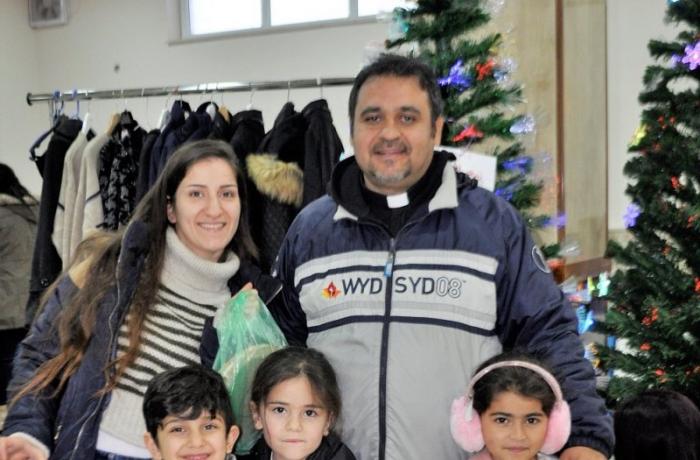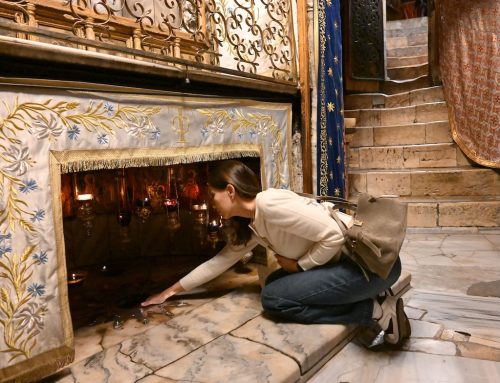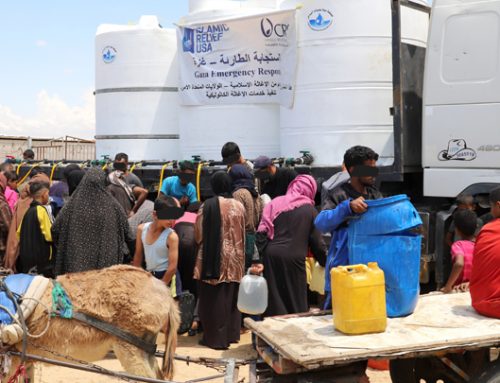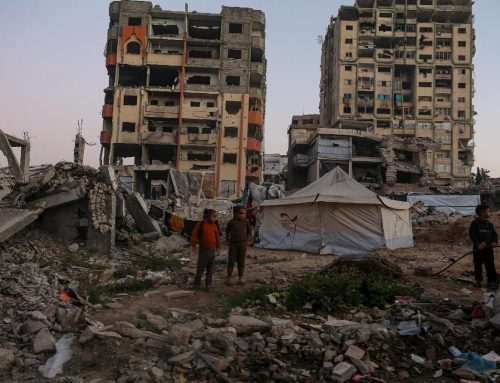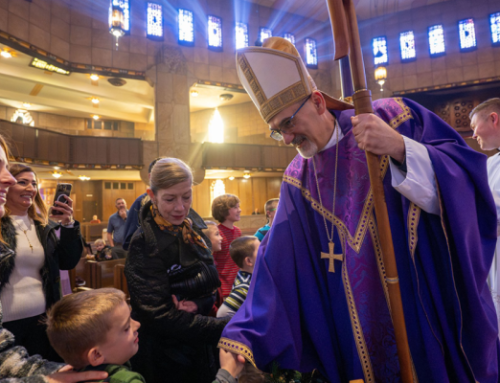As the amount of aid drops, hardships increase. Unemployment and poverty are compounded by the country’s political crisis and new refugees caused by Turkey’s offensive in Syria. Clergyman expresses closeness to protesters who are “in the streets for us too, for a united country”. Donations are “a sign of hope and closeness”.
Enishke – Five years after they fled, refugees from Mosul and the Nineveh Plain in Iraqi Kurdistan still have a hard life “with entire days without electricity, less and less aid and no jobs”. Amid this, reconstruction is proceeding very slowly. Yet, despite “concerns and fatigue” people attend “Masses, meetings, community” in great numbers, showing that their faith is alive and strong,” said Fr Samir Youssef, a parish priest in the Diocese of Amadiya, speaking to AsiaNews.
Over the years, the clergyman helped thousands of Christians, Muslims and Yazidis who fled their homes in the summer of 2014 as a result of the invasion of the Islamic State group. “The cross,” he explained, “combined with God’s love and against a backdrop of hardships, becomes a tangible experience every day and makes us feel stronger and closer to our faith.”
People – locals and refugees from Mosul, Nineveh, and the latest from north-eastern Syria – “are increasingly tired because of the lack of jobs, the drop in aid, and salaries that go unpaid for far too often.” Unemployment is in fact one of the most serious problems because it makes any upturn hard to envisage.
All this “creates a vacuum, a feeling of pain, which is filled by the birth of Jesus, who is the source of grace.” Refugees identify with Jesus, who “was born in a cave” as they too feel they “live in a cave with great deprivation. Still, this is the time and place in which the Lord is reborn and gives us the gift of His presence.”
During the weeks of Advent, “we hold Masses and moments of prayer. Tomorrow’s plans include a spiritual retreat for the children, and before Epiphany we’ll hold a moment to prepare gifts for the little ones.”
They are readied “so the children can spend a nice Christmas” even if celebrations will be lowkey. “We heeded the Chaldean Patriarch’s appeal” to cancel merriments and revels, as well as the Midnight Mass because of anti-government protests.
“First we had the Islamic State, then came the political crisis,” said Fr Samir. This “has encouraged people to focus on the spiritual side of the observance. We also want to remember husbands, Christians and Muslims, who are in the streets for us too, because we too want a united country, under one flag. Although far away, we feel emotionally close to and united with them.”
Iraqi Kurdistan too is feeling the effects of the country’s political and institutional crisis, centred on the capital and Shia-majority south. “The struggle for power and the economic crisis has generated instability, stopped construction, gridlocked the few existing development projects and reduced job prospects. Plus, the central government in Baghdad is not paying salaries, the last one dating back to September. Money was expected before Christmas, but everything has now been halted.”
All this makes life that much harder for families “already beset by the lack of money and resources. There is nothing to buy kerosene to heat homes and supplies are ad hoc for the local population.”
“For the refugees, things are worse. We try to make it up for them with aid from the Church to benefit everyone – Christian, Muslim and Yazidi refugees – without distinction. But there is less and less of it.”
Father Samir is the parish priest in Enishke. He has been one of the main beneficiaries of AsiaNews’s campaign Adopt a Christian from Mosul. Although the fight against the Islamic State, militarily defeated two years ago, has formally ended, the jihadi mindset is still strong. Today displaced people continue to face many problems and lack the basics to survive.
“Here, in the Amadiya region, we have been left to fend for ourselves more than elsewhere. Some refugees have tried to go home, but the situation in Sinjar, Mosul and in Nineveh Plain is still dreadful. For this reason, they chose to come back to Iraqi Kurdistan.”
Turkey’s offensive against the Kurds in north-eastern Syria has triggered a new wave of refugees with repercussions across the region.
“In my parish alone, we have taken in 35 Syrian families, two of them Christian, whilst the others are Muslim. They fled at the start of the offensive. Some found shelter with friends and family: others ended up in reception centres. However, they have no means and no possibility to survive, so the need is, if you can believe it, even greater.”
“In such darkness and with such crying needs, the help and support of benefactors is even more valuable and important. Donations are a sign of hope that make us feel that we are less alone.”Source: www.asianews.it

